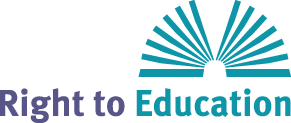Research evidence from around the world echoes that learning first in one's mother language leads to better outcomes in the future – for individuals, cultures, and nations. This indicator examines whether provisions in the national laws or policies exist to ensure equal access to education for children belonging to migrants, refugees, asylum seekers or any non-citizens, including provisions for the necessary equipment and support they need to access the learning and learning materials in their mother tongue.
Convention on the Rights of the Child, Article 30; Indigenous and Tribal Peoples Convention, Article 28; International Convention on the Protection of the Rights of All Migrant Workers and Members of Their Families, Article 45.4; Declaration on the Rights of Persons Belonging to National or Ethnic, Religious and Linguistics Minorities, Article 4.3; International Covenant on Economic, Social and Cultural Rights, Article 13 and 15, General Comment No. 21 (para. 27).

For more details about learning in the mother tongue at ECCE level, refer to UNESCO (2020), Mother Tongue and Early Childhood Education - Synergies and Challenges.
Note that laws / legislative provisions will be more protective than policies. For more information see our webpage ‘What information to look at’ and chapter 6 of the RTE / UNESCO Right to Education handbook.